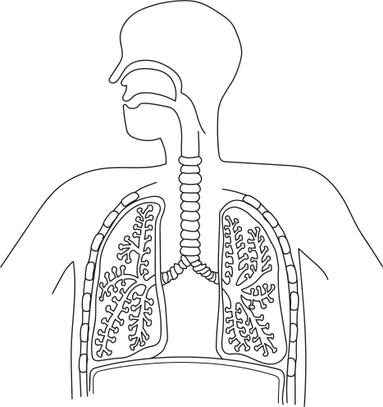Myths about teaching can hold you back
- Year 9
Lifestyle diseases
I can describe some common lifestyle diseases, factors that increase the risk of developing them, and steps you can take to help prevent them.
- Year 9
Lifestyle diseases
I can describe some common lifestyle diseases, factors that increase the risk of developing them, and steps you can take to help prevent them.
These resources were made for remote use during the pandemic, not classroom teaching.
Switch to our new teaching resources now - designed by teachers and leading subject experts, and tested in classrooms.
Lesson details
Key learning points
- Some lifestyle factors affect the risk of developing non-infectious diseases of the gas exchange and circulatory system.
- Eating an unbalanced diet and not getting enough exercise can increase the risk of developing lifestyle diseases.
- Smoking, drinking alcohol and using drugs can increase the risk of developing lifestyle diseases.
- To prevent lifestyle diseases people can exercise, eat a balanced diet, not smoke and avoid drinking alcohol.
Keywords
Risk - Something that increases the chance of something harmful happening.
Non-infectious disease - A disease that cannot be passed from one organism to another.
Lifestyle factor - This is something a person can do that will affect their health.
Lifestyle disease - A type of non-infectious disease. The risk of it developing is affected by lifestyle factors such as diet and exercise.
Common misconception
All fat in the diet should be excluded.
Fat is vital for a healthy balanced diet. Unsaturated fats from plants help to build cell membranes.
To help you plan your year 9 science lesson on: Lifestyle diseases, download all teaching resources for free and adapt to suit your pupils' needs...
To help you plan your year 9 science lesson on: Lifestyle diseases, download all teaching resources for free and adapt to suit your pupils' needs.
The starter quiz will activate and check your pupils' prior knowledge, with versions available both with and without answers in PDF format.
We use learning cycles to break down learning into key concepts or ideas linked to the learning outcome. Each learning cycle features explanations with checks for understanding and practice tasks with feedback. All of this is found in our slide decks, ready for you to download and edit. The practice tasks are also available as printable worksheets and some lessons have additional materials with extra material you might need for teaching the lesson.
The assessment exit quiz will test your pupils' understanding of the key learning points.
Our video is a tool for planning, showing how other teachers might teach the lesson, offering helpful tips, modelled explanations and inspiration for your own delivery in the classroom. Plus, you can set it as homework or revision for pupils and keep their learning on track by sharing an online pupil version of this lesson.
Explore more key stage 3 science lessons from the Disease and drugs unit, dive into the full secondary science curriculum, or learn more about lesson planning.

Equipment
Content guidance
- Depiction or discussion of sensitive content
Supervision
Adult supervision recommended
Licence
Prior knowledge starter quiz
6 Questions
Q1.What is a balanced diet?
Q2.Which type of fat should we limit in our diet?
Q3.What does BMI stand for?
Q4.What takes place in the mitochondria?
Q5.Which is the correct order for the passage of air into our lungs?

Q6.A 32 year old woman has a height of 1.54 m and a mass of 65 kg. Calculate her BMI; BMI = body mass ÷ (height)²
Assessment exit quiz
6 Questions
Q1.Which of the following are risk factors for lifestyle diseases.
Q2.Which of the following lifestyle diseases affect the respiratory system?
Q3.When a blood vessel in the brain gets blocked it can lead to a ...
Q4.Match the type of exercise to the lifestyle disease it can help with.
reduces the risk of cardiovascular diseases
reduces the risk of bone diseases such as osteoporosis


